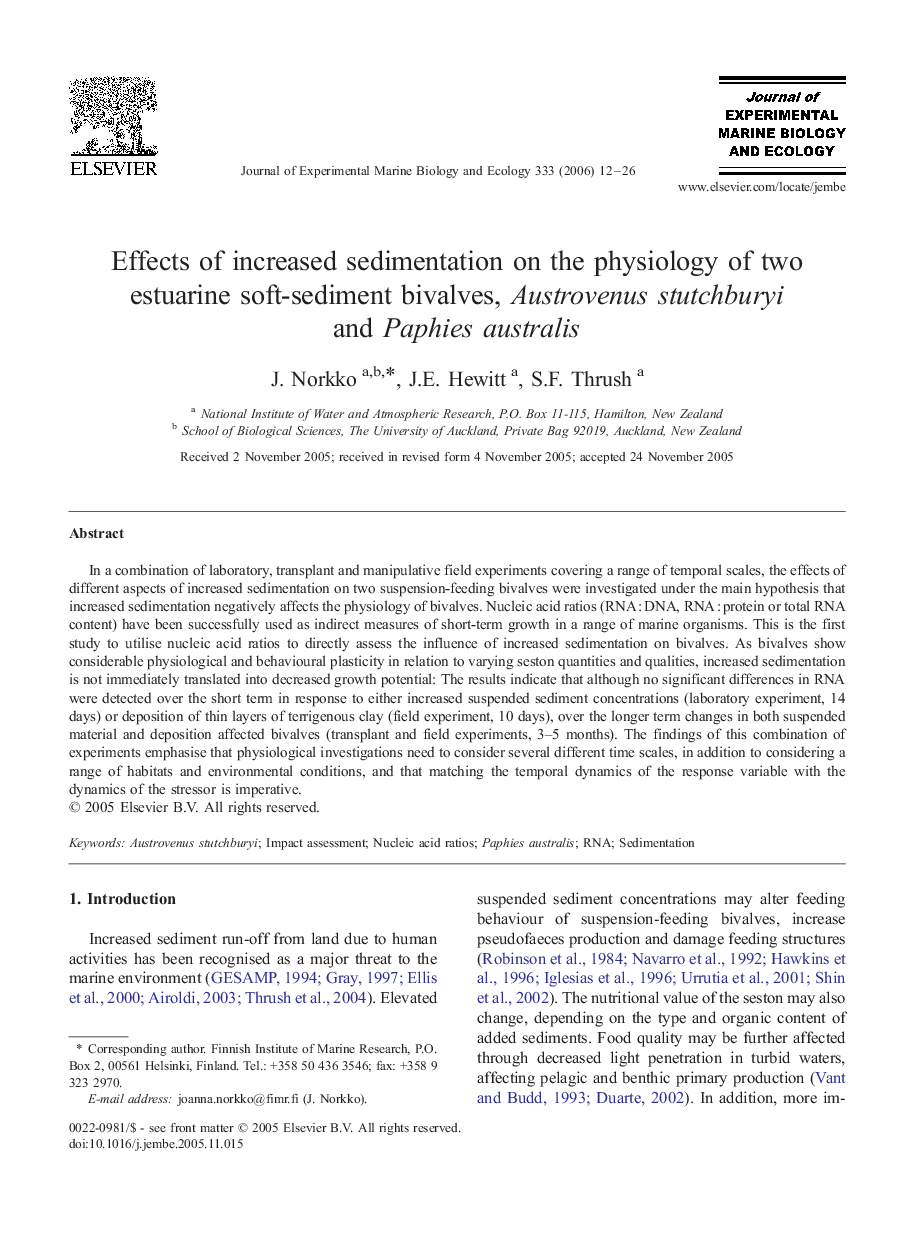| Article ID | Journal | Published Year | Pages | File Type |
|---|---|---|---|---|
| 4398062 | Journal of Experimental Marine Biology and Ecology | 2006 | 15 Pages |
Abstract
In a combination of laboratory, transplant and manipulative field experiments covering a range of temporal scales, the effects of different aspects of increased sedimentation on two suspension-feeding bivalves were investigated under the main hypothesis that increased sedimentation negatively affects the physiology of bivalves. Nucleic acid ratios (RNAÂ :Â DNA, RNAÂ :Â protein or total RNA content) have been successfully used as indirect measures of short-term growth in a range of marine organisms. This is the first study to utilise nucleic acid ratios to directly assess the influence of increased sedimentation on bivalves. As bivalves show considerable physiological and behavioural plasticity in relation to varying seston quantities and qualities, increased sedimentation is not immediately translated into decreased growth potential: The results indicate that although no significant differences in RNA were detected over the short term in response to either increased suspended sediment concentrations (laboratory experiment, 14 days) or deposition of thin layers of terrigenous clay (field experiment, 10 days), over the longer term changes in both suspended material and deposition affected bivalves (transplant and field experiments, 3-5 months). The findings of this combination of experiments emphasise that physiological investigations need to consider several different time scales, in addition to considering a range of habitats and environmental conditions, and that matching the temporal dynamics of the response variable with the dynamics of the stressor is imperative.
Related Topics
Life Sciences
Agricultural and Biological Sciences
Aquatic Science
Authors
J. Norkko, J.E. Hewitt, S.F. Thrush,
